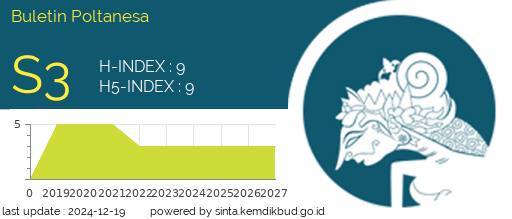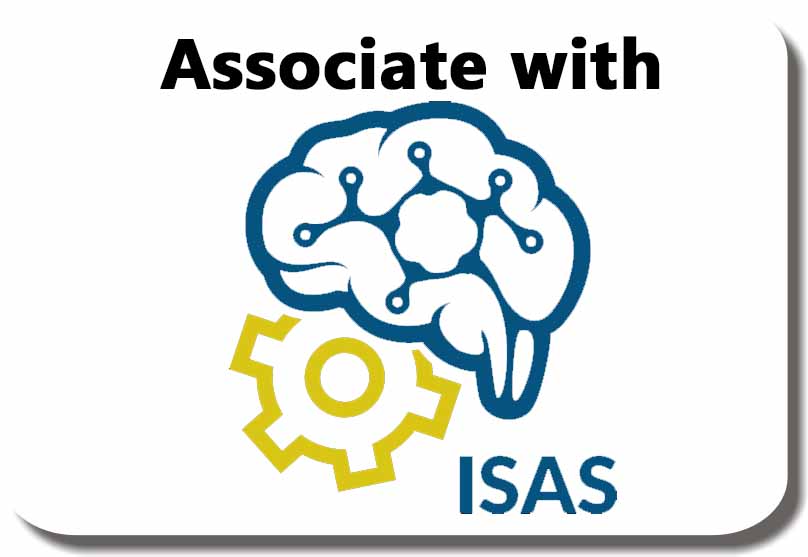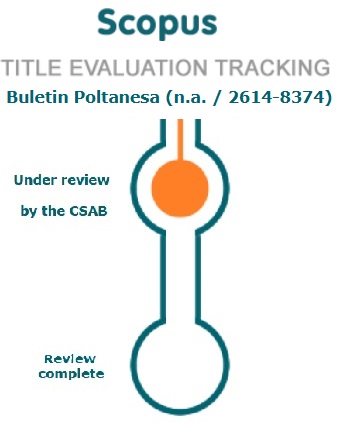Philosophy Of Religious Education Management at State Elementary School 002 Kuaro
DOI:
https://doi.org/10.51967/tanesa.v24i2.2948Keywords:
Philosophy, Management, Religious EducationAbstract
This research explores the philosophy of religious educational management at State Elementary School 002 Kuaro. he primary focus is to comprehend the philosophical principles underlying the administration of religious aspects in the context of elementary education. The research methodology employed is qualitative, utilizing interview and observation techniques. The research subject is State Elementary School 002 Kuaro, one of the formal educational institutions under the auspices of the Education Agency of Kabupaten Paser, established in 1974, located at the village of Keluang Paser Jaya, Kuaro District, Paser Regency, East Kalimantan Province, Indonesia. This study centers its attention on the scope of educational management in the school, including curriculum management, facility and infrastructure management, as well as financial management. The research findings indicate that the philosophy of religious education management at State Elementary School 002 Kuaro reflects religious values integrated into daily policies and practices. This includes instilling habits and rituals as an implementation of the teachings. Students are accustomed to participating in collective prayers, reading the Quran, and performing Friday Dhuha prayers together in the school courtyard, among other practices. In the implementation of the philosophy of religious management at State Elementary School 002 Kuaro, there are still several challenges, especially related to the utilization of facility and infrastructure management and financial management, in its efforts to enhance the application of religious management philosophy in the school.
References
Adijaya, N., Rahmat, A., & Rohman, S. (2022). Pengelolaan Sumber Belajar Bahasa Inggris Di SLB Berdasarkan Filsafat Manajemen. Tadbir Muwahhid, 6(2), 111–124.
Budiman, S., & Suharto, A. W. B. (2021). Filsafat ilmu pendidikan islam dalam perspektif pendidikan jasmani. JISIP (Jurnal Ilmu Sosial Dan Pendidikan), 5(3).
Danny, M. A. F., Huda, R. M., & Fajria, Z. I. (2023). MANAJEMEN KURIKULUM DAN EVALUASI. Educational Leadership: Jurnal Manajemen Pendidikan, 2(2), 247–262.
Harahap, D. (2023). Filosofi Penggerakan Manajemen Pendidikan Islam. ITTIHAD, 6(1).
Hartono, N. D., & Nuzula, M. F. (2022). Manajemen Pendidikan Islam di SD Islam Surya Buana Kota Malang. Jurnal Kependidikan Islam, 12(2), 138–147.
Ilham, I. (2020). PENDIDIKAN ISLAM DI MADRASAH: Suatu Kajian Permasalahan Dan Solusi Pendidikan Madrasah Dalam Perspektif Filsafat Pendidikan Islam. TAJDID: Jurnal Pemikiran Keislaman Dan Kemanusiaan, 4(2), 103–124.
Indriani, E., Erita, Y., & Henita, N. (2022). Pendidikan Karakter Religius Peserta Didik Sekolah Dasar Dalam Perspekif Filsafat Idealisme. Didaktik: Jurnal Ilmiah PGSD STKIP Subang, 8(2), 2274–2284.
Khalilurrahman, K. (2021). Pendidikan Islam Omar Muhammad Al-Toumy Al-Syaibany Falsafah Al-Tarbiyah Al-ASLAMIYYAH. Tarbiyah Darussalam: Jurnal Ilmiah Kependidikan Dan Keagamaan, 5(2).
Kurniawan, A. (2019). Filsafat Ilmu Manajemen Pendidikan Islam Rekontruksi Kritis Islamisasi Manajemen Pendidikan Islam Dalam Konteks Kekinian. JURNAL YAQZHAN: Analisis Filsafat, Agama Dan Kemanusiaan, 5(1), 16–41.
Marisa, M. (2021). Filosofi Manajemen Pendidikan Islam dalam Perspektif Al-Qur’an. Al-Idaroh: Jurnal Studi Manajemen Pendidikan Islam, 5(1), 44–64.
Marliat, M. (2023). Filsafat Pembelajaran Konstruktivisme Dalam Manajemen Pendidikan Islam. Innovative: Journal Of Social Science Research, 3(3), 11079–11088.
Muhartini, M., & Amril, A. (2023). Integrasi Agama dan Sains Dalam Perspektif Abdussalam Solutif-Sintesisnya Terhadap Problema Pendidikan Islam. SOKO GURU: Jurnal Ilmu Pendidikan, 3(2), 01–14.
Nasution, A. (2022). Manajemen pendididikan dalam persefektif filsafat islam. Tafahham, 1(1).
Qudsiyah, B., Laila, F., Munir, B., Suprianto, W. D., & Nurhayati, N. (2023). Hakikat Pendidikan Dan Manajemen Pendidikan Di Sekolah. Jurnal Multidisiplin Indonesia, 2(6), 1297–1303.
Saifudin, A., & Yusuf, M. (2022). PARADIGMA DAN LANDASAN FILSAFAT MANAJEMEN PENDIDIKAN ISLAM. JURNAL PIKIR: Jurnal Studi Pendidikan Dan Hukum Islam, 8(2), 61–79.
Sasmita, E., Desyandri, D., & Erita, Y. (2023). Penerapan Nilai-nilai Pengetahuan Filasafat dalam Rangka Meningkatkan Kualitas Pendidikan Keagamaan di Sekolah Dasar. Jurnal Pendidikan Dan Konseling (JPDK), 5(1), 1757–1765.
Satriyadi, S., Intan, N., Wijaya, S., Azmi, F., & Syukri, M. (2023). Manajemen Pendidikan dalam Perspektif Filsafat Islam. Islamic Management: Jurnal Manajemen Pendidikan Islam, 6(01).
Supriatna, U. (2021). Manajemen Pendidikan dalam Konstelasi Progresivisme (Telaah Filsafat Pendidikan John Dewey). QALAMUNA: Jurnal Pendidikan, Sosial, Dan Agama, 13(2), 337–348.
Tolchah, M. (2020). Implikasi Filsafat Pendidikan dalam Pengembangan Kurikulum Pendidikan Agama Islam Perspektif Kuntowijoyo. Fikrotuna: Jurnal Pendidikan Dan Manajemen Islam, 11(1), 1402–1431.
Wardhana, K. E. (2022). Pengaruh Kematangan Anak Usia Dini Terhadap Hasil Belajar Matematika Siswa Kelas 1 Sekolah Dasar. Sultan Idris Journal of Psychology and Education, 56–66.
Wardhani, N. K., & Hamani, T. (2023). URGENSI ASAS FILOSOFIS DALAM PENGEMBANGAN KURIKULUM PENDIDIKAN AGAMA ISLAM. Pendas: Jurnal Ilmiah Pendidikan Dasar, 8(2), 1689–1704.
Downloads
Published
How to Cite
Issue
Section
License
Copyright (c) 2024 Buletin Poltanesa

This work is licensed under a Creative Commons Attribution-ShareAlike 4.0 International License.
The copyright of this article is transferred to Buletin Poltanesa and Politeknik Pertanian Negeri Samarinda, when the article is accepted for publication. the authors transfer all and all rights into and to paper including but not limited to all copyrights in the Buletin Poltanesa. The author represents and warrants that the original is the original and that he/she is the author of this paper unless the material is clearly identified as the original source, with notification of the permission of the copyright owner if necessary.
A Copyright permission is obtained for material published elsewhere and who require permission for this reproduction. Furthermore, I / We hereby transfer the unlimited publication rights of the above paper to Poltanesa. Copyright transfer includes exclusive rights to reproduce and distribute articles, including reprints, translations, photographic reproductions, microforms, electronic forms (offline, online), or other similar reproductions.
The author's mark is appropriate for and accepts responsibility for releasing this material on behalf of any and all coauthor. This Agreement shall be signed by at least one author who has obtained the consent of the co-author (s) if applicable. After the submission of this agreement is signed by the author concerned, the amendment of the author or in the order of the author listed shall not be accepted.









